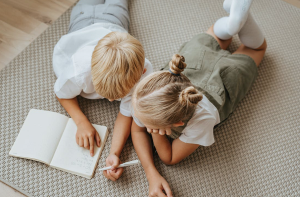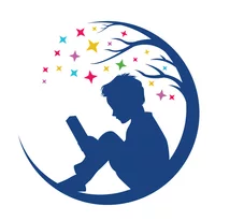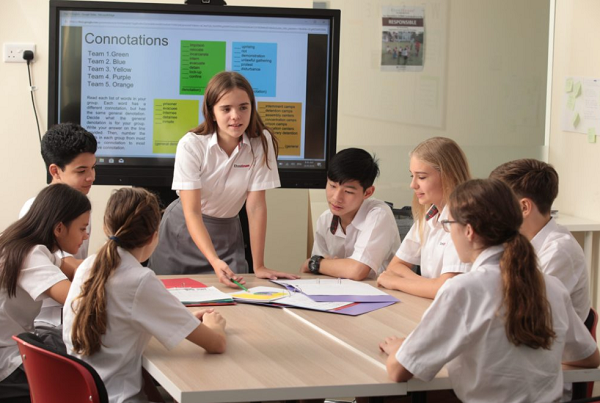7 Key Factors for Teaching Kids
Practice Coping Skills at Home & School
1. Stress starts earlier in life than we think. Over 40 classes with more than 700 pre-teens have participated in demonstrations of the coping skills and brain works education project. From pre-project student self-report evaluations we know that a large percentage of 4th to 6th graders have difficulty coping with stress, anger or sadness. According to their anonymous self-assessments, from 35% to 100% of pre-teen students in a class may need help in dealing with normal, everyday emotional stress and upsets. Accelerated child development today means that many pre-teens are already at risk of prolonged stress levels that can lead to harmful behavior and learning difficulty. These issues were earlier thought to primarily affect teenagers in middle and high school.
2. Mounting evidence shows brain-based coping skills education works. Student self-report data collected immediately after participating in a brief, introductory (less than three-hour) classroom demonstration project helps pre-teens increase their brain function literacy . In the case of Brain Works, knowledge is truly power! What else would cause 40% to 80% of pre-teen students, immediately after the project, to report gains in understanding and ability to regulate responses to stressful and painful events?
3. Classrooms are an ideal place for this type of experiential learning. Learning by doing helps pre-teens to better understand and practice brain-based healthy coping skills. This can be effectively accomplished in a safe, peer learning environment — their classroom. When they learn together, students overcome the stigma about their problems that keep them from dealing with stress in their life. It is interesting to observe that when students in a group learn how their brain works and responds to stress, they also learn positive traits by observing and taking coping cues from classmates. They see that hurt feelings and emotional stress are a normal part of everyone s life by participating with others in project activities and classroom discussions. Many kids (and adults) naturally fear talking about their upsets, emotional wounds and stress. Unfortunately, in our culture many of us are conditioned to conceal information about how we really feel inside. However, during the few hours working in the Brain Works classroom project discussing coping brain functions students realize there are skills they can learn just like everyone else! Coping challenges are seen as a normal and inevitable. Once liberated from their peer “code of silence” students realize their highest (thinking) brain function enables them to name what they feel so so they can deal with it more easily. The key for educators is encouraging kids to develop these skills through practice. Classroom discussions help all students to understand that they can regulate how their brain responds to upsets. We cannot discount the positive impact when coping-challenged kids are given an opportunity to learn from higher functioning peers . In every class there is a spectrum of student coping capabilities. Kids are deeply affected by recognizing there are both good and poor coping models among their peers. This is why Brain Works started as a class experiential learning project.
4. Brain Works for Kids is a safe and healthy way of learning. In the entire seven-year history of demonstrating Brain Works for Kids in classrooms there has never been one complaint from a participating student or their parents. What we can offer pre-teens comes at a time when they are starting to struggle with who they are, how they feel, and how they fit in . Presented as a science unit, the classroom project is like learning human biology. Students are fascinated to compare brain traits of reptiles and mammals — often learning this from their own pets!. For students, this is more than an “academic” education. They can apply brain function literacy in their everyday life in the way they respond to a coping crisis. We know that some students come to school struggling with shame a pre-teen realizes when they believe they aren t able to cope. For these and other pre-teens (particularly those with teenage siblings) they already suspect major changes are in store when they become teenagers. The critical question is “Can we prepare them” so they won”t be overwhelmed by an avalanche of stressful experiences tumbling down upon them during the turbulent teenage years . Students can see their peers high risk behavior, violent, self-harmful acts such as numbing feelings with drugs and alcohol are not only dangerous, but disrupt learning. They become aware that these coping challenges require learning how their brain works and is the center for positive coping skills!

5. Coping with stress can improve learning. Educators have a vested interest in helping students to learn healthy ways of overcoming stress and upsetting experiences. Conclusive neuroscience research shows that experiencing prolonged periods of stress impairs the brain”s ability for attention, memory and learning. By age 11 or 12, most of the child”s brain is nearly fully developed. Pre-teens are capable of grasping the basics of brain-based coping functions. One bonus is that this knowledge helps to develop greater coping confidence and better self-management of stress. Since long periods of stress can impair learning. Learning and coping skills are related. Both brain-based activities requiring healthy, safe and effective self-management capabilities. Today we beginning to use the Internet (sites such as this one) to educate teachers and parents so they can help their pre-teens to learn critical life skills through home and classroom discussions and activities.
6. Pre-teens learn coping skills (good and poor) from observing others. None of us were born with the ability to regulate our coping response to frightening, harmful or threatening experiences. Coping skills are often learned by observing how their parents, peers and even their teachers cope with difficulty, stressful experiences and disappointment. By the time kids become teenagers, coping patterns may have become “automatic” habits. Pre-teens often acquire healthy or unhealthy coping patterns by being immersed in entertainment media “messages.”
7. Kids can”t change their parents or peers. An important coping principle that life teaches kids is this: It is often difficult or impossible to change the way others respond to us or how they cope with challenges in their life. Yet, we can change the way we personally respond to inevitable, upsetting experiences . We can start learning these skills in just a few hours at home or school. Pre-teens need a safe way to practice applying basic skills and tools strengthen their own healthy brain-based coping ability. The Brain Works project simply offers tools that pre-teens can use to learn self-management abilities, increase their resilience, and coping confidence. As adults who have gone through adolescence, we should know how much our children will need to use these skills not only during their emotionally turbulent teenage years, but for the rest of their life!
| Learning about these tools is not rocket science. Over 700 pre-teens have already done it and practice using healthy brain-based coping skills with overwhelming positive results. There have been over 40 classroom demonstrations in the past five years. Now pre-teens, their parents and teachers everywhere can start using this new Internet learning resource on their own or in groups – at home or at school. This website has assembled essential information so that families and schools can introduce brain-based coping skills literacy for pre-teen students. Be sure to look through Resources & Activities. Let us know if you”d like more information about Brain Works for Kids by contacting us with Comments or ?”s. |





